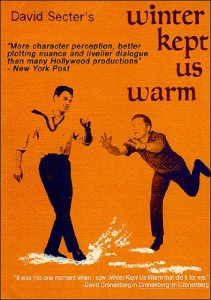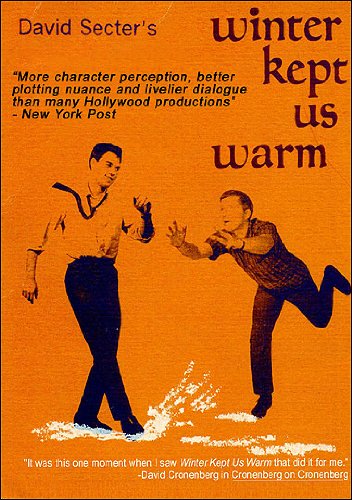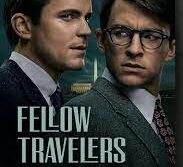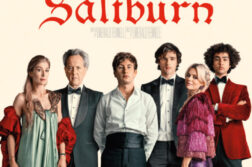 Winter Kept Us Warm
Winter Kept Us Warm
Directed by David Secter
Canadian Filmmakers
Distribution Centre
IN 1965, a 22-year-old undergraduate student at the University of Toronto set out to make his first feature-length film. The result was David Secter’s Winter Kept Us Warm, a story about two young dorm-mates who fall in love—innocent, occasionally awkward, but groundbreaking as a love story between two men, and an autobiographical one at that. Winter Kept Us Warm (the title is taken from T. S. Eliot’s “The Waste Land”) matter-of-factly recounts the relationship that unfolds between two undergraduates as they struggle to balance their studies with their emerging social lives.
When applying for permission to shoot the film at the University of Toronto campus, Secter was forced to camouflage his subject matter—but the themes in the film won’t be lost on contemporary audiences accustomed to more explicit offerings. One scene even has the two men in the shower together, allowing one to playfully lather up the other’s back with soap. While the sexual element of their relationship could only be hinted at, given attitudes of the time, upon its release Variety, the movie industry’s bible, referred to it as a film about homosexuality.







